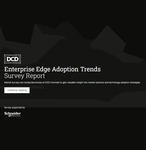Financial services firm JPMorgan Chase is aiming to get 75 percent of its data and 70 percent of its applications into the cloud within 2024.
In a letter from CEO Jamie Dimon to JPMorgan's shareholders, the company revealed its new cloud strategy.
The company manages assets worth $5.9 trillion, and its the world's fifth largest bank by revenue.
Dimon told shareholders: “Getting our technology to the cloud - whether the public cloud or the private cloud - is essential to fully maximize all of our capabilities, including the power of our data."
According to Dimon, this will help speed up the delivery of services, reduce the cost of compute power, and enable greater amounts of compute capability to be made available via burst computing. JPMorgan will also be able to better utilize its data, and adopt new technologies, following the migration.
The company will "carefully pick" which applications go to private or public clouds, considering the expense, security, and needs of the application, Dimon said. He also noted the importance of using multiple cloud providers to avoid lock-in.
The company plans to maintain its own expertise internally, regardless of whether this would be more expensive than relying on cloud providers.
JPMorgan has 32 data centers globally and spent $2 billion on four new private cloud data centers in 2021. Currently, the company has around 50 percent of its applications and 70 percent of its data running mostly on the cloud.
"The new data centers are around 30 percent more efficient than our existing legacy data centers," said Dimon. "Going to the public cloud can provide 30 percent additional efficiency if done correctly (efficiency improves when your data and applications have been modified, or “refactored,” to enable new cloud services). We have been constantly updating most of our global data centers, and by the end of this year, we can start closing some that are larger, older, and less efficient."
In addition to laying out the company's cloud strategy, Dimon noted the important role of artificial intelligence (AI) in the company's operations.
JPMorgan has been using AI for over a decade, and the company now employs more than 2,000 AI/machine learning experts and data scientists. It is exploring the use of generative AI for its software engineering, customer services, and operations departments. "In the future, we envision GenAI helping us reimagine entire business workflows. We will continue to experiment with these AI and ML capabilities and implement solutions in a safe, responsible way," said Dimon.
The migration to the cloud is necessary to enable this. Dimon noted. "In addition to making sure our data is high quality and easily accessible, we need to complete the migration of our analytical data estate to the public cloud," he said. "These new data platforms offer high-performance compute power, which will unlock our ability to use our data in ways that are hard to contemplate today."







